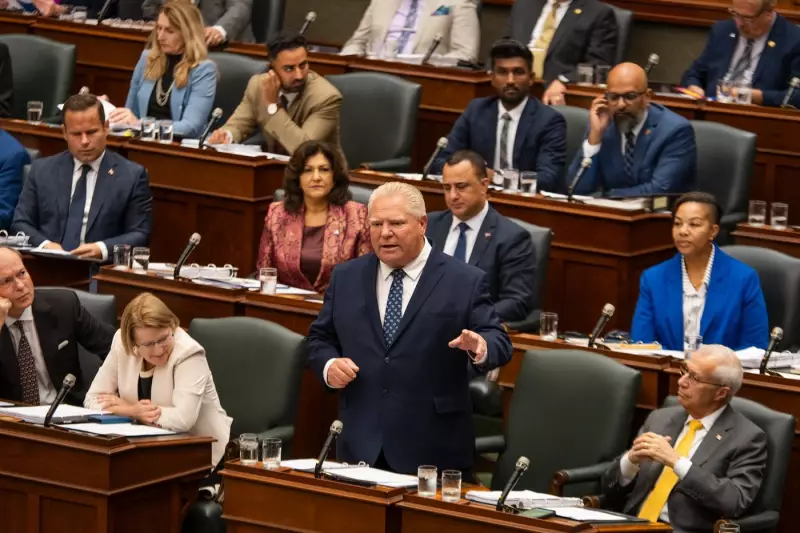
The Ontario government is quietly pushing through significant legislative changes, including a controversial education bill that would grant the education minister sweeping new powers over school boards, while avoiding the traditional public hearing process that typically accompanies such substantial policy shifts.
Legislative Maneuver Raises Democratic Concerns
Through a procedural tactic known as a "time allocation" motion, the Progressive Conservative government has limited debate on multiple bills, effectively sidestepping the opportunity for public input and committee scrutiny. This move has drawn criticism from opposition parties and democratic reform advocates who argue the government is suppressing transparent lawmaking.
The most contentious legislation affected by this maneuver is Bill 98, the Better Schools and Student Outcomes Act. This wide-ranging education reform package contains provisions that would dramatically increase the education minister's authority to intervene in school board operations.
What Bill 98 Would Change
The proposed legislation represents one of the most significant centralizations of education power in recent Ontario history. Key provisions include:
- Granting the education minister direct authority to compel school boards to make specific operational changes
- Establishing new provincial standards for student achievement and board performance
- Creating enhanced powers to address school board trustee conduct
- Mandating that school boards use provincial property standards
- Requiring boards to develop policies that align with provincial priorities
Government Defends Approach
Government House Leader Paul Calandra defended the accelerated process, stating that the time allocation motion ensures "important legislation" can move forward efficiently. He emphasized that the government remains committed to improving Ontario's education system and that these reforms are necessary for achieving better student outcomes.
However, opposition critics have slammed the approach. NDP education critic Chandra Pasma called the move "anti-democratic," noting that "rushing through legislation without proper consultation, especially on matters as important as education, undermines the legislative process and public trust."
Broader Pattern of Limited Consultation
This isn't the first time the Ford government has utilized time allocation to limit debate. The current session has seen multiple bills fast-tracked through the legislative process, including housing-related legislation and other education measures.
The pattern has raised concerns among legislative observers about the government's commitment to transparent lawmaking and adequate public consultation on policies that directly affect millions of Ontarians.
What Comes Next
With the time allocation motion passed, Bill 98 and other affected legislation will proceed directly to third reading without the typical committee stage where public presentations and detailed clause-by-clause analysis occur. This means the expanded ministerial powers could become law without the thorough public examination that normally accompanies such significant education reforms.
The developments come at a time when Ontario's education system faces multiple challenges, including ongoing negotiations with education workers, learning recovery efforts following pandemic disruptions, and increasing calls for modernization of curriculum and infrastructure.





